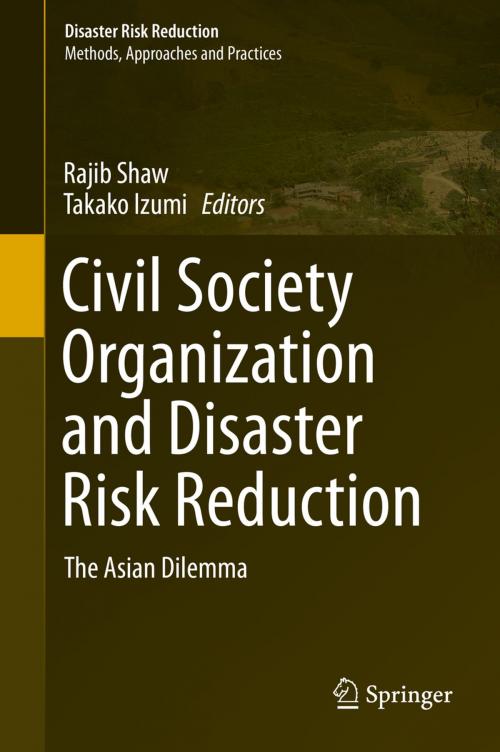Civil Society Organization and Disaster Risk Reduction
The Asian Dilemma
Nonfiction, Social & Cultural Studies, Social Science, Methodology, Science & Nature, Nature, Environment, Natural Disasters| Author: | ISBN: | 9784431548775 | |
| Publisher: | Springer Japan | Publication: | April 10, 2014 |
| Imprint: | Springer | Language: | English |
| Author: | |
| ISBN: | 9784431548775 |
| Publisher: | Springer Japan |
| Publication: | April 10, 2014 |
| Imprint: | Springer |
| Language: | English |
Civil society organizations (CSOs) have played important roles over the years in the disaster field. Starting from the traditional approach of response and relief, the emphasis has gradually shifted to disaster risk reduction. From international nongovernmental organizations (NGOs) to national and local NGOs, all stakeholders have recognized the significance of and need for community-based risk reduction. In their different capacities they have endeavored to establish links to the policy options at the local and national levels. There still are many issues that remain untouched by CSOs, however, and local CSOs face special challenges in resources in terms of human, financial, and technical issues.
Drawing examples from Asia, this book is structured on the roles of CSOs according to the Hyogo Framework for Action priority areas: policy making, risk assessment, education and training, underlying risk factors, and response–recovery. The primary target groups for this book are students and researchers in the fields of environment, disaster risk reduction, and climate change studies. The book provides a clear view of the current trends of research in the field and furnishes basic knowledge on these important topics. Another target group comprises practitioners and policy makers, who will be able to apply the knowledge collected here to policy and decision making.
Civil society organizations (CSOs) have played important roles over the years in the disaster field. Starting from the traditional approach of response and relief, the emphasis has gradually shifted to disaster risk reduction. From international nongovernmental organizations (NGOs) to national and local NGOs, all stakeholders have recognized the significance of and need for community-based risk reduction. In their different capacities they have endeavored to establish links to the policy options at the local and national levels. There still are many issues that remain untouched by CSOs, however, and local CSOs face special challenges in resources in terms of human, financial, and technical issues.
Drawing examples from Asia, this book is structured on the roles of CSOs according to the Hyogo Framework for Action priority areas: policy making, risk assessment, education and training, underlying risk factors, and response–recovery. The primary target groups for this book are students and researchers in the fields of environment, disaster risk reduction, and climate change studies. The book provides a clear view of the current trends of research in the field and furnishes basic knowledge on these important topics. Another target group comprises practitioners and policy makers, who will be able to apply the knowledge collected here to policy and decision making.















